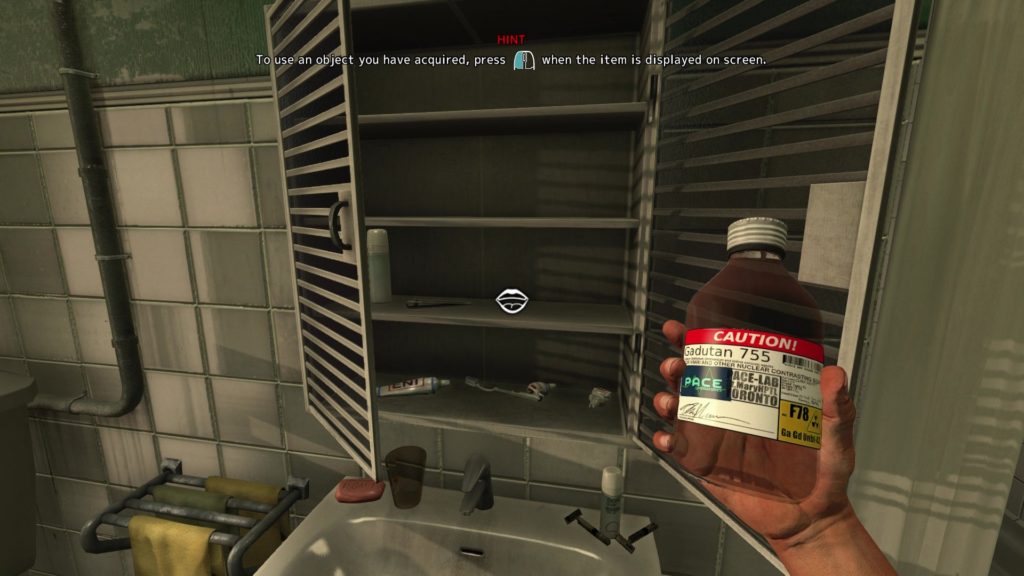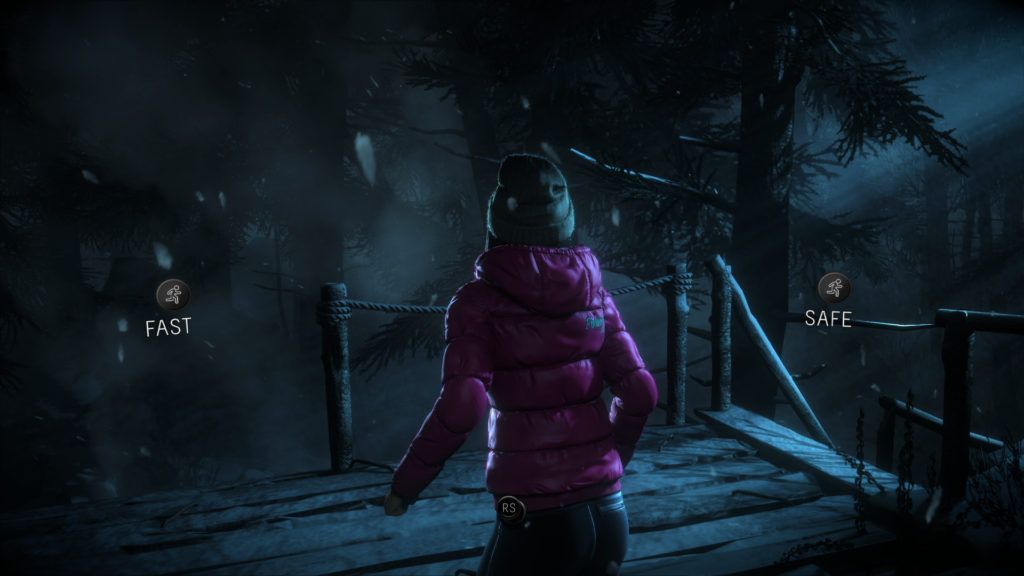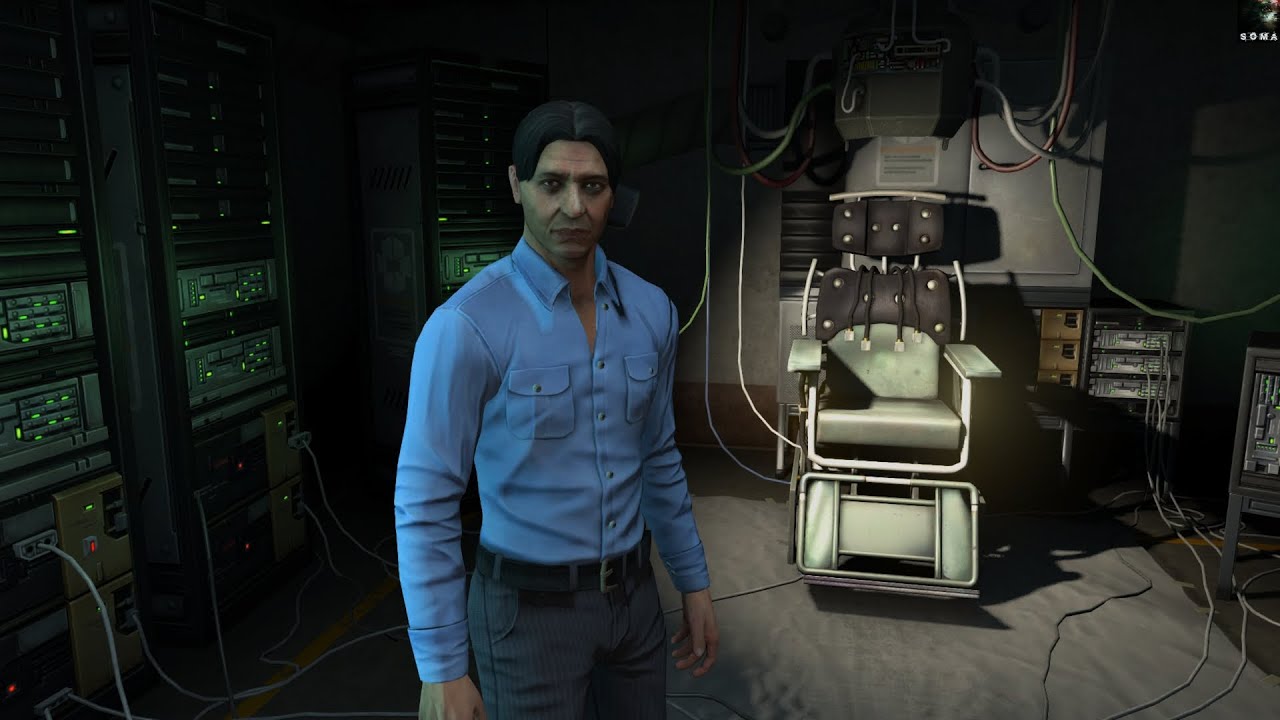Whether it’s horror movies or horror video games, the genre has a way of keeping you on your toes. One way in which Soma and Until Dawn both do this is by constantly throwing in things that make the player ask themselves “what was that?” or “where did that come from?”
Let’s first take a look at Soma, a first person survival horror game where the main character, by design, has no clue what is going on. We start this game in an apartment, awoken by the vibration of a phone. I can’t vouch for everyone, but if I am awoken by a phone call, my heart starts to pump knowing that either I’m late for something or that something happened. Needless to say, while nothing can quite replicate that feeling, Soma gives this a valiant effort. We quickly are put under pressure to find some sort of medicine throughout the apartment. The location of this bottle is unknown to the main character, which sets the stage for future “unknowns” to instill fear.

After this scene, we head to the protagonist’s brain scan. It is very clear our character is uneasy about the scan, seemingly worried about what he doesn’t know. He asks the doctor questions before he eventually undergo the scans. When we wake up, we find ourselves in a world we don’t recognize. Windows are shattered, only emergency lights remain on, and everything is in shambles. The fear of the unknown is never more prevalent in this game than in this moment, where we don’t know where we are, why we are there, or how to get out. Eventually, the game begins to feel less scary. Perhaps this is because we are more comfortable in our environment?
Until Dawn, like Soma, utilizes our natural fear of the unknown to keep us on our toes. In fact, this game does it in a much more direct way. Early in the game, we learn that every decision we make could have long-term ramifications. When we make decisions that change the course of the future, we receive a butterfly icon in the corner of our screen, letting us know we have impacted the future through “the butterfly effect.” So where does the horror come from? First, it comes from the fact we have no clue what our future has in store for us. Our future is unknown, thus creating a sense of fear that any decision that seems inconsequential could cause the direction of the game to take a turn for the worse. The second thing that creates fear, especially at the beginning of the game, is the unknown of our surroundings. Why can’t we shine a flashlight in certain areas? Why do the makers of the game only let us see certain things at certain times. Much like a horror movie, we can only see as much as the creator wants us to see.

Ultimately, the fear of the unknown we feel when playing the game gives us a feeling of uneasiness and terror. What this ultimately does is put us in the shoes of the main character, allowing the creators of the game to use the main character as a medium for expressing ideas, whatever they may be.


I think the fear of the unknown is one of the most important details in not only horror games, but all games. It is the sense of unease that propels the player forward — forced to face their fears head on and be filled with a sense of terror that can only be taken away by playing the game further until the sense of completion that we get from finishing the game replaces any other sense that we may have once had. Until Dawn and SOMA use this fear perfectly, since every corner, every fixed camera, every dark room created a sense of dread in the player, as we wish that we could just turn on the lights and make the game all the more inviting. And yet, we push forward because this fear of the unknown drives us. As you noted, we are constantly keep on our toes, and know that we will never be off our toes until the game is complete and we are used to this sense. With every new mystery the game presents, we are more inclined to solve it, even if we must become terrified in the process.
Hello, I want to start off by commending you on writing a great article! I appreciate you framing the idea of horror around what is known/unknown, it is something I have been thinking about a lot for my video essay, particularly in “Until Dawn.” The mechanic I was thinking about in the game was its use of the totems as a way for the player to gain knowledge and control their fears to an extent. However, I think that this mechanic is also counterintuitive to the idea of a horror game, where your goal should be to escape the situation as quickly as possible, because the player finds themselves going through a space slowly so they do not miss any totems/information. Additionally, it is interesting to consider how this fear of the unknown plays into our decision making in “Until Dawn” in situations that should illicit fear for the characters. More specifically, in what ways does our disparity between what we know as players and what the characters themselves know change how we play the game? Do the game developers try to address this by tricking us, where the seemingly “safe choice” puts the player in a worse situation?